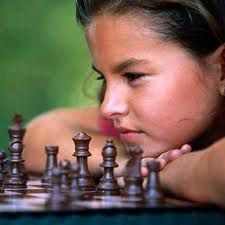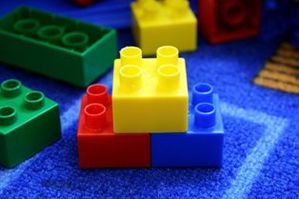
What is Working Memory?
Our memory is the core of our learning and ability to function successfully within our environment. We need to remember what we hear, see, feel, smell and taste in order to process, analyse and form conclusions about our experiences. In school, children need to remember facts, dates, numbers, spellings and many other key elements that form our education.
Our working memory is a temporary system for storing and managing the information that passes by quickly, but is needed to carry out complex cognitive tasks such as learning, reasoning and comprehension. This information is not required to be remembered forever and is only needed for short term. Short term memory has a limited capacity (not much of it can be stored) and it has a rapid loss of information as it is only stored for a limited time to be used at that time.
Children with working memory difficulties are often seen as having poor concentration and attention. They are easily distracted and lose their train of thought whilst another replaces it. Working memory difficulties will make it hard for the child to follow instructions and retain information. This can result in them being poor at subjects like mental maths because once they are distracted away from the task the information that should have been held in the working memory is gone and they have to start all over again.

It has been observed that children with coordination difficulties will also tend to have working memory difficulties. This is because they are distracted by consciously thinking about coordinating their movements, so that the information that should be held in their working memory is lost. Learning will become difficult for these children and they lose motivation or they start guessing the answers and appear not to have understood the question or the process.
Children with dyspraxia are 7 times more likely to have poor visual-spatial memory than those without motor difficulties. Visual-spatial memory is used for remembering directions and locations as well as in tasks such as handwriting and maths. It is therefore essential to be able to hold such information in the working memory to function at a level expected of their age. These children could have a high IQ, but would still underachieve in school if they have working memory difficulties.

Intervention
Intervention for improving the working memory is vast and can be categorised into the component parts of the Auditory, Visual and Tactile memory. It is usually the auditory and visual memories that are concentrated on in schools and needed for classroom learning. An Occupational Therapist can assess the child for specific working memory difficulties as each sense has different aspects to it e.g. visual-spatial, visual-closure, visual-figure-ground, visual-discrimination as well as similar aspects of the auditory system including sound pitch, sound sequencing and sound intensity.
When working on the development of visual memory the role of language in labelling and fixing visual experience and visual imagery is of great importance. With visual working memory the therapist concentrates on recall of displayed material (with delayed recall). The identification and reproduction of colours, shapes, forms, symbols, letters, words and sentences as well as recent visual experiences are used. Sequential memory is also worked on as this has a great impact on reading and spelling.
Below is a game that is beneficial to developing the visual working memory. This idea would be graded and adapted by the therapist to suit the individual child. It is therefore important to have an assessment carried out by a trained therapist.
The training of auditory working memory and auditory sequencing involves accurate repetition of known sequences or colours or numbers presented to the child for recall. This is usuall graded and increases with difficulty as the child progresses. This is essential for understanding, retaining and following instructions. There are numerous different activities that can be used for training the auditory working memory.
Individual treatment programmes that are also beneficial to the whole class are often given to teachers by the Occupational Therapist. This ensures that the required amount of treatment is easily encorporated into the school's routine and the other children benefit from the programme as well. The general recommendation for improving a child's working memory is to develop effective coping strategies with situations in which the child may experience working memory failures. This includes:
- Encouraging the child to ask for forgotten information where necessary.
- Training in the use of memory aids
- Offering encouragement to continue with complex tasks rather than giving up (even if the steps are not completed due to memory failure)
Arming the child with such self-help strategies will promote their development as independent learners who are able to identify and support their own learning needs.
A useful website to visit:
http://communications.specialdirect.com/q/1oMVms7WSdXki/wv

write a comment …



/image%2F1484276%2F20171122%2Fob_85a846_radiator-anniversary7.jpg)
/https%3A%2F%2Fassets.over-blog.com%2Ft%2Fcedistic%2Fcamera.png)
/https%3A%2F%2Fimg.youtube.com%2Fvi%2FOx3yBHIANTQ%2F0.jpg)
/image%2F1484276%2F20151001%2Fob_ae1435_dsc02009.JPG)